#Abstract Feelings
Explore tagged Tumblr posts
Text

Turning away from the light
Becoming adult
Turning into myself
I wanted to bite not destroy
To feel her underneath
Turning into the light
#Poetic Vibes#TurningIntoTheLight#Existential Mood#Deep Thoughts#Melancholic Beauty#Abstract Feelings#Self Reflection#Artistic Soul#Monochrome Mood#Emotional Journey#olga rembielińska#poetic#kobieta#Poetycki Nasłuch#ŚwiatłoICień#Głębokie Myśli#Melancholia#Refleksja#Monochromatyczne#PodróżWDuszy#FotografiaZPrzesłaniem#Wewnętrzny Świat#Dotyk Światła
13 notes
·
View notes
Text
instagram


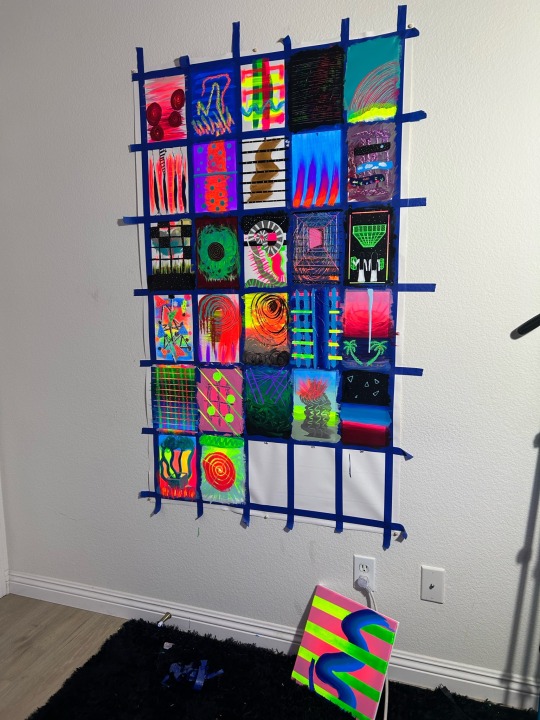
Dimensional Reveal , 2023. —- In the process of working on Abstract Feelings November, I got inspired to create a separate piece to further expand on my processing of a situation. It was interesting to see the blue paint take the form of a snake-like shape when I was done because it was symbolic of what’s been on my mind, and I wasn’t consciously thinking about a snake. Free association working its magic!
#art#abstractart#artist#contemporaryart#artgallery#abstract#neonart#nature#abstract feelings#arttherapy#therapy#smart#glowinthedarkart#newart#therapist#yanagordinart#Instagram
0 notes
Text
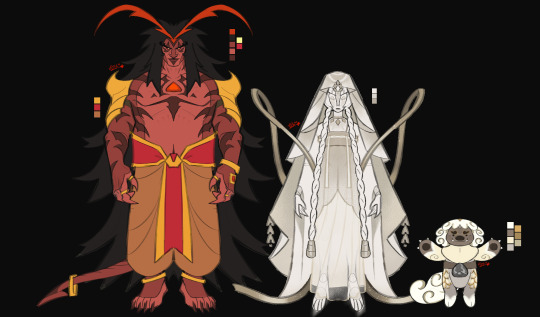
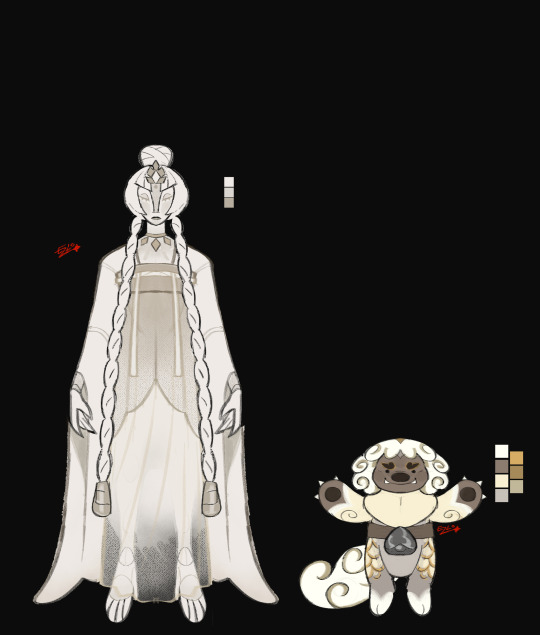
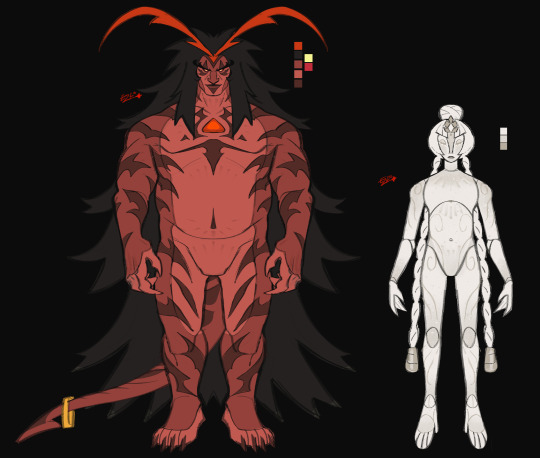

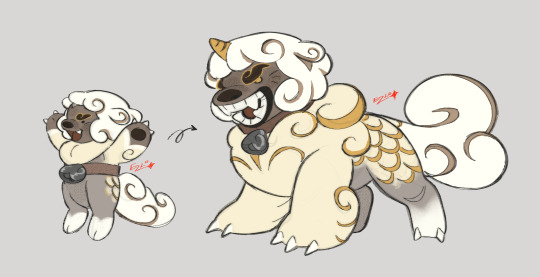
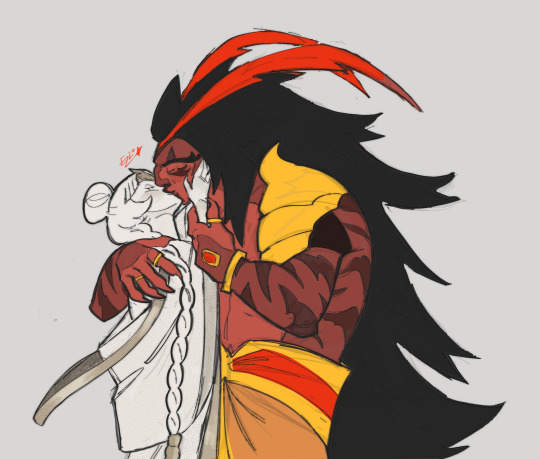

haiii i am back with more beast cookies cause these two still have ne on a chokehold <333 bonus bald shadow milk cookie cameo and cloud haetae cookie
I actually have a lot of fun drawing them weee
#please ignore the last image thx <3#crk#mystic spice#burning spice cookie#mystic flour cookie#cloud haetae cookie#shadow milk cookie#my art#im still figuring out how to draw shadow milk...im getting close but i feel like i can get rlly abstract w his design
2K notes
·
View notes
Text

yuri month day 1: I want you to see me ♡
(femslashfeb prompt list)
#minifemslashfeb2025#YURI MONTH AWOOOOO#DAY ONE ARE WE BACK FELLAS#JOIN IN IF YOU WANNA! IT'S TIME FOR WLW WINS#danganronpa#kaemaki#harumatsu#kaede akamatsu#maki harukawa#pomelo: akamatsu kaede#pulasan: harukawa maki#back on my abstract bs again sorry#that was what I was feeling today
2K notes
·
View notes
Text

It's crazy how Dungeon Meshi's manga can feel more cinematic and emotional than the anime to me, even when they're practically the same. Compared to the anime, this moment is such a heartbreaking gut-drop. The way Kui uses negative space and flat compositions to create a sense of horrific stillness is so key.
The way the text (Senshi's monologue) is sequestered to an empty corner of a panel or huddled away from the edge of its text box is not only a great way of showing Senshi's headspace (fearful, isolated, dissociating), but creates a visual representation of pause, as if you hold your breathe after each line. The first panel puts us directly in Senshi's perspective too (compared to in the anime, which puts us as an outside observer over Senshi's shoulder). The detail of the door and bricks so effectively implies that he stared at it for so long, waiting and hoping, that its image is burned in his memory. The wood grain, the brick arch, the number of rivets. The lack of dialogue in the second panel shows a moment of realization too –– "he's dead" (also a great example of the Kuleshov effect). And it's that pause that creates a beat and sets a great rhythm to his headspace, like a music rest: "He never came back." (oh god.) "I'm all alone." Finally, the third panel's negative space, cropping Senshi, shows how truly alone he feels. Without his family, the world ceases to exists. Under shock, he traps himself in a 1-foot radius, too scared to even perceive a world outside its boundaries; a world that can hurt him, kill him, make him disappear with it. There is only his body, the stone beneath his feet and against his back, his thoughts, and that awful bowl of soup.
Even though they're a series of flat images, there's an implicit reading of silence in Senshi's realization and horror. Kui influences your experience to slow down and take your time.
Compare this to the anime, which fills every shot with dialogue. The pacing is fast; we never get to sit in silence like we do with the manga. The horizontal frame allowed the boarders to add Senshi, turning the composition into an over-the-shoulder shot, which takes us out of Senshi's POV. They also added a zoom-out in shot one, which adds unnecessary energy to a very somber scene. The tightening on Senshi as a close-up reaction shot also dulls the moment. In the original panel, Senshi stares ahead at the empty space to his left as a shadow surrounds his mind. It not only shows how Senshi's senses are dulling and his world is shrinking (setting up panel three), but shows how terrified Senshi is of what's in front of him, how the air itself becomes pitch black and opaque, how Senshi is surrendering himself to fear. The pacing is understandable and necessary; this episode packed a lot of story content together. It's just a shame because it really (imo) deflated one of the most nauseating moments in Dungeon Meshi.
#dungeon meshi#senshi#analysis#personal#long post#not art#because comics are inherently more abstract and rule-breaky the format thrives off show don't tell#i think trigger is doing a great job overall but they missed the mark on this scene#for me cinematic storytelling will prioritize rhythm; tension; and silence over plot. that's why the manga feels more “cinematic”#if you've been enjoying the anime i cannot recommend also reading the manga enough. it's a completely different experience with much more#subtext and emotion to draw from
4K notes
·
View notes
Text

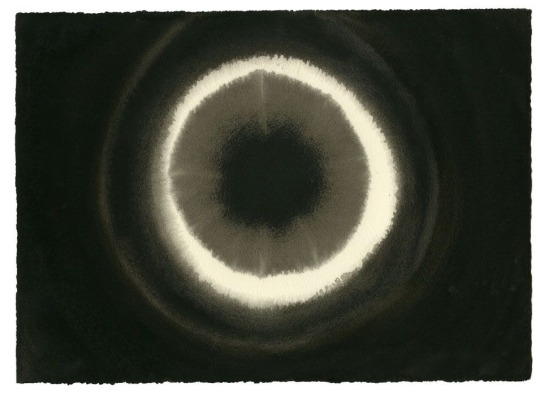
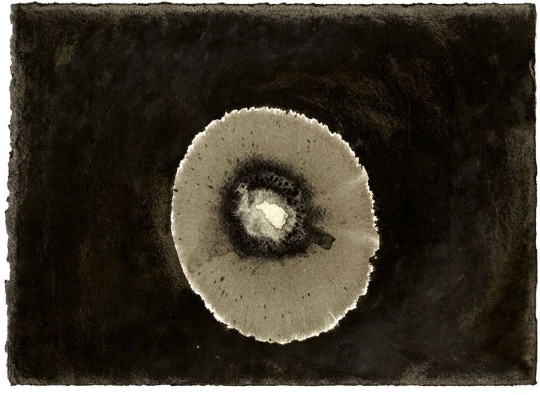
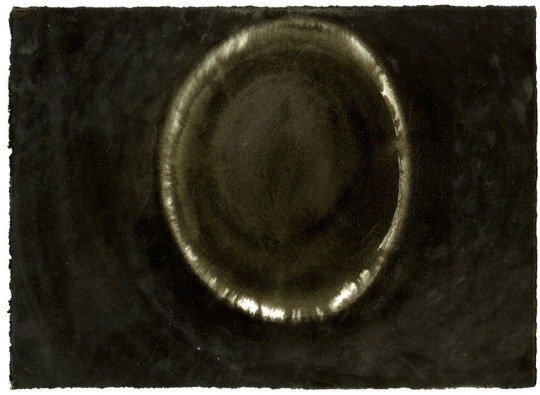



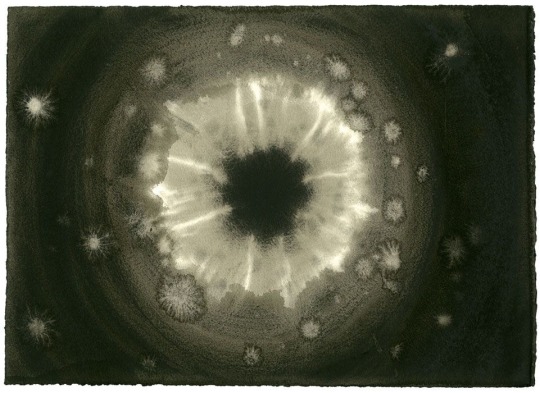
Antony Gormley, selections from the “Cosmic” series.
#art inspo#abyss#antony gormley#dark art#dark and moody#dark aesthetic#abstract art#ethel cain#mother ethel#ethelcore#ethel cain core#the pull#the ring#feel the pull#the great dark#it’s happening to everybody#ethel cain perverts#ethel cain punish
1K notes
·
View notes
Text
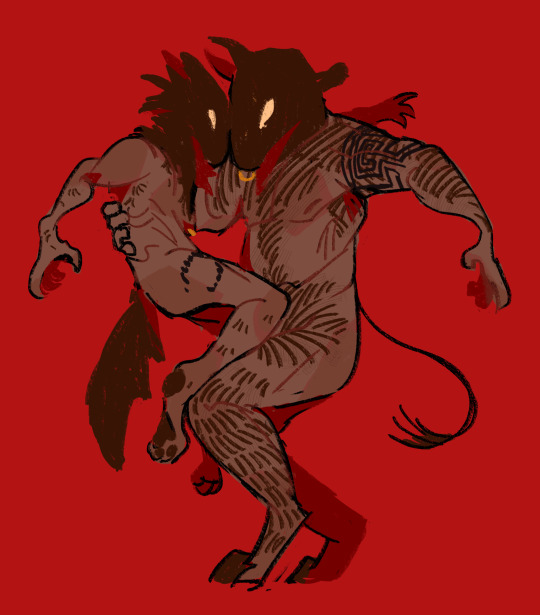
λυκάνθρωπος / Μινώταυρος
#caption is ''lycanthrope / minotaur'' in ancient greek. bc im feeling silly#i know that like really werewolves and the minotaur have nothing in common BUT THEYRE BOTH ANIMAL PEOPLE! u have to#understand. its about the abstraction from humanity while also existing SO close to it.#werewolf#aceart#werewolfisms#minotaur#my art
9K notes
·
View notes
Text
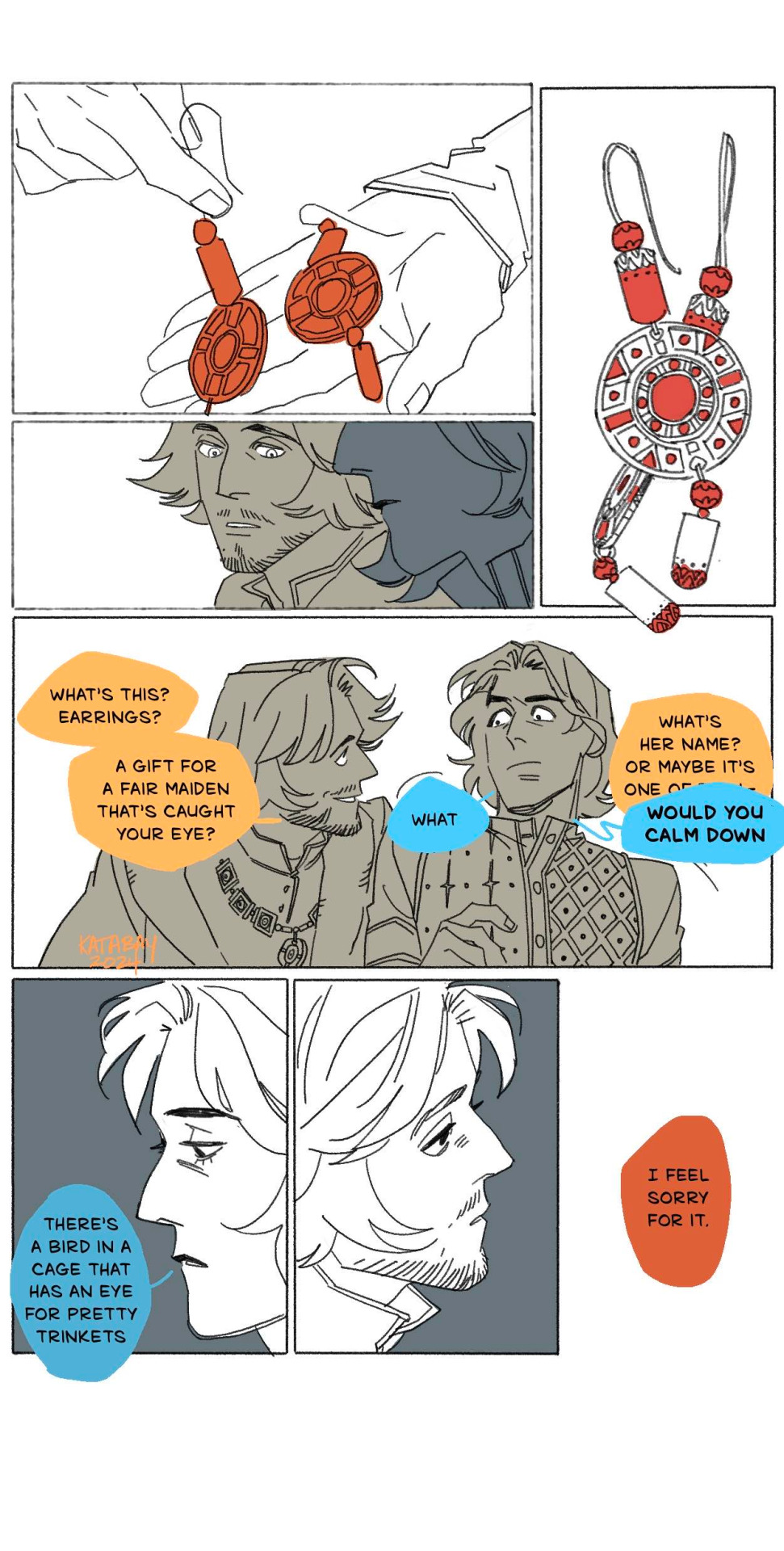
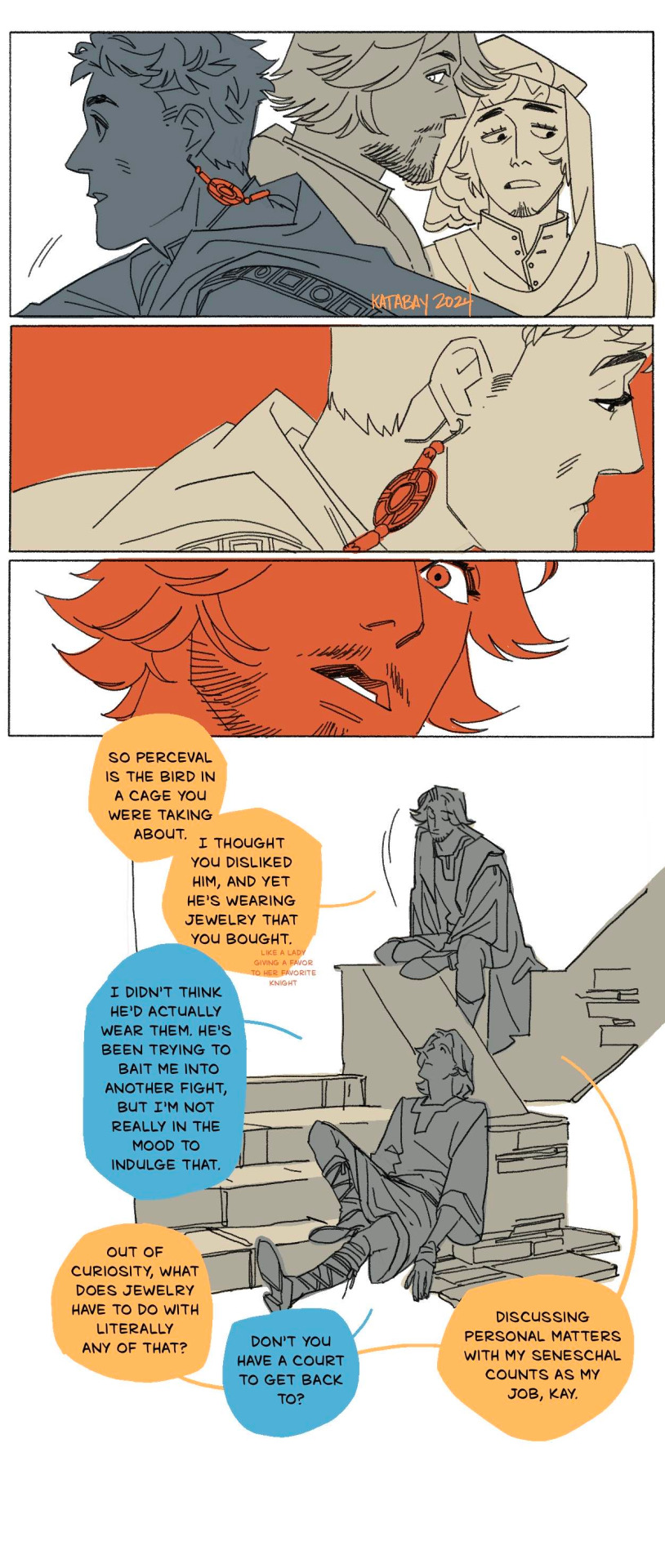
earlier this year I started writing a comic about the siege perilous-grail quest situation after finally finishing the didot perceval, and it started circling around kay and perceval. kay as gatekeeper, taboo anxiety vs chivalry, and perceval not doing things "correctly," arthur's enduring affection for kay. that general area. also the horror of the grail quest itself.
this is comic is part of that narrative arc, so with THAT in mind: this is an abridged scene of a longer arc revolving around kay associating camelot with a cage, perceval's associations with jewelry and knighthood and the color red, and arthur's relationship with kay.
[some other scene context: perceval has injured his hand and can't participate in the tournaments, so he's craving some kind of fight. kay is disinterested in replying to this challenge, but he's not above reminding perceval of their first meeting. it's just mean enough in a weird-intimate kind of way that perceval's like, ok so we're doing the antagonistic version of court romance rituals. he picks up hunting because kay can't leave the castle.]
on the subtext of jewelry:


Clothes Make the Man: Parzival Dressed and Undressed, M.D. Amey
on the topic of kay, gatekeeping, and taboo anxiety:
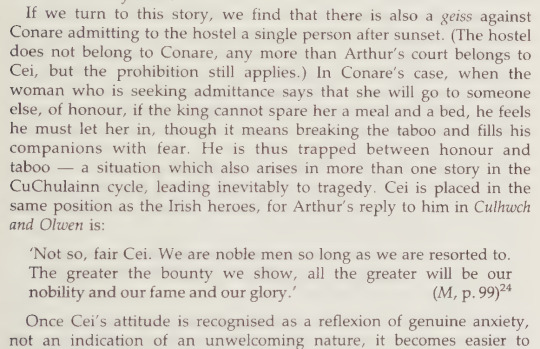
Cei and the Arthurian Legend, Linda Gowans
the whole Red Knight/Perceval Shows Up In A Dead Man's Suit Of Armor transgression-situation (which kay references through red jewelry) mentioned is told in both de Troye's and Wolfram's Perceval narratives :)
anyway! to close out all this out: the transgressions. incredible! what is camelot but a bunch of transgressions stacked on top of each other tbh.
#i wanted to do some kind of siege perilous-grail quest horror comic after watching bresson's lancelot and i think#after several years. i figured out what kind of story i want it to be#like it no longer feels abstract i can see the story core and now i have to hack away at the clay to see if i can make a figure out of it#HEUGH. okay. i'm gonna wrap this up here. ive been Very Under The Weather lately in some kind of way#trying to get back in the swing of things. but augh. eugh. they need to invent a kind of body that doesnt fall to pieces#the minute it gets slightly less sun than usual like vitamin supplements only go so far. awful flesh prison experience#komiks tag#long post#knights knights knights!
736 notes
·
View notes
Text
i feel like dream in human aus is usually characterized as being more stoic and stern while hob is more easygoing, but i think it would be funny to have a university au where hob is the professor who's like "no work is deserving of 100%. find 27 more sources and do it again" while dream is just like "they put their dreams into it, hob 🥺 A+! A+! A+! A+!"
#hob: you got this date wrong in the paper. c-#dream: i like all the misspelled words. really adds personality to the story. A+#hob is the ideal teacher for students whove always gotten good grades easily and need someone to challenge them more#dream is the ideal professor for students who struggle with self confidence and need to feel more capable#hob should only teach 400 level senior classes. dream teaches Intro to Poetry 😂#one time they swap papers to grade and then hob's like 'dream why did you give all my students As' dream's like 'they tried their best 🥺'#hob's like THEYRE HISTORY MAJORS DOING THEIR DISSERTATION AND YOU LET ONE OF THEM SPELL HATE AS 'H8'#dream: why'd you give my students Bs :(. hob: one of them turned in a coffee stain as a poem? wth#dream: everything is poetry hob. it's abstract. oh my god you dont get it at all 🙄#dream's unconventional method does work tho. he has an uncanny ability to get even the most disengaged students to care SOMUCH about poetry
508 notes
·
View notes
Text
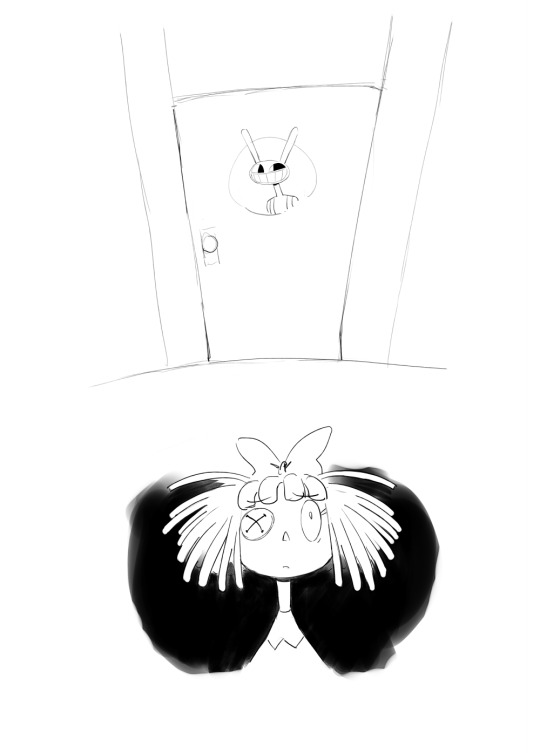
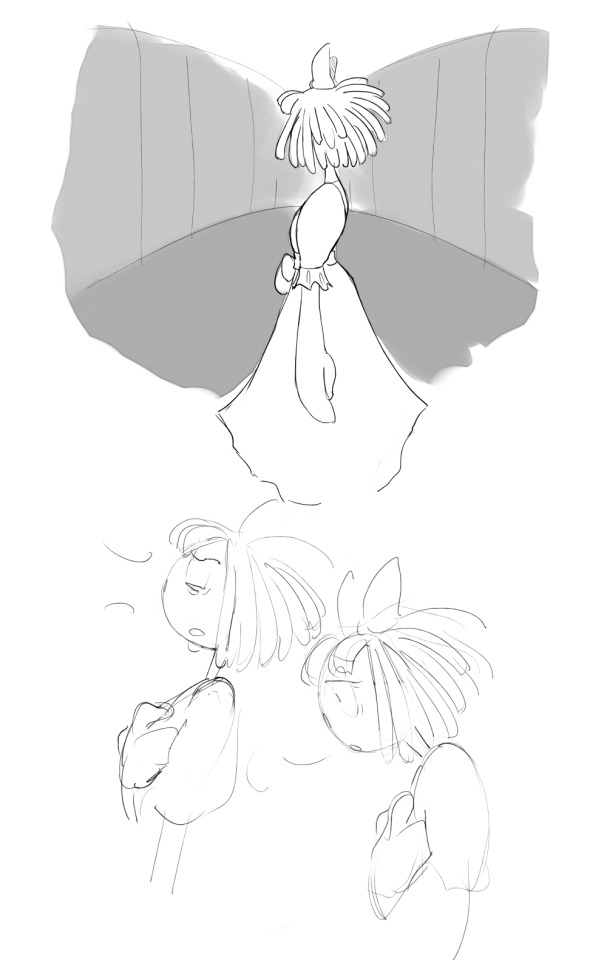
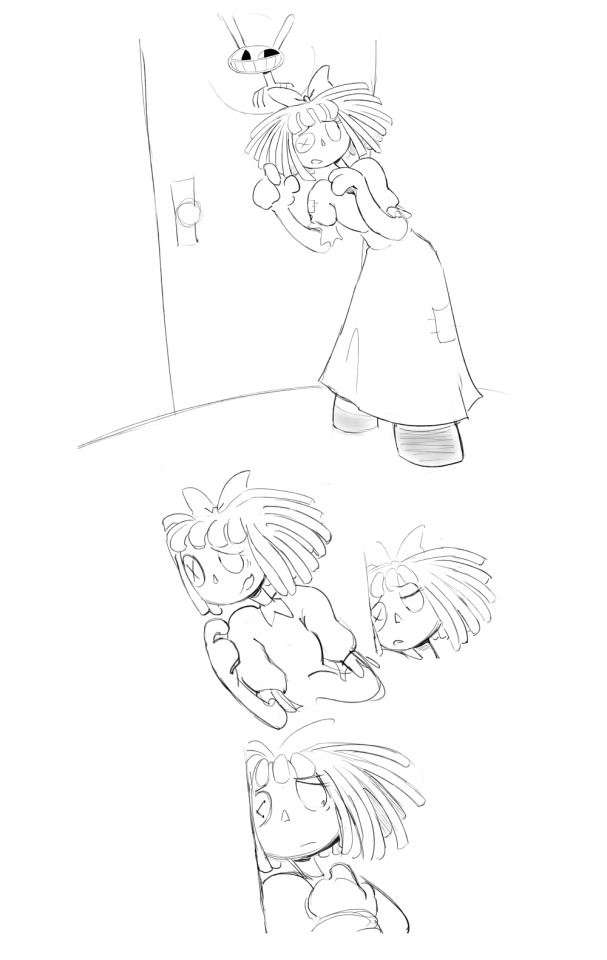
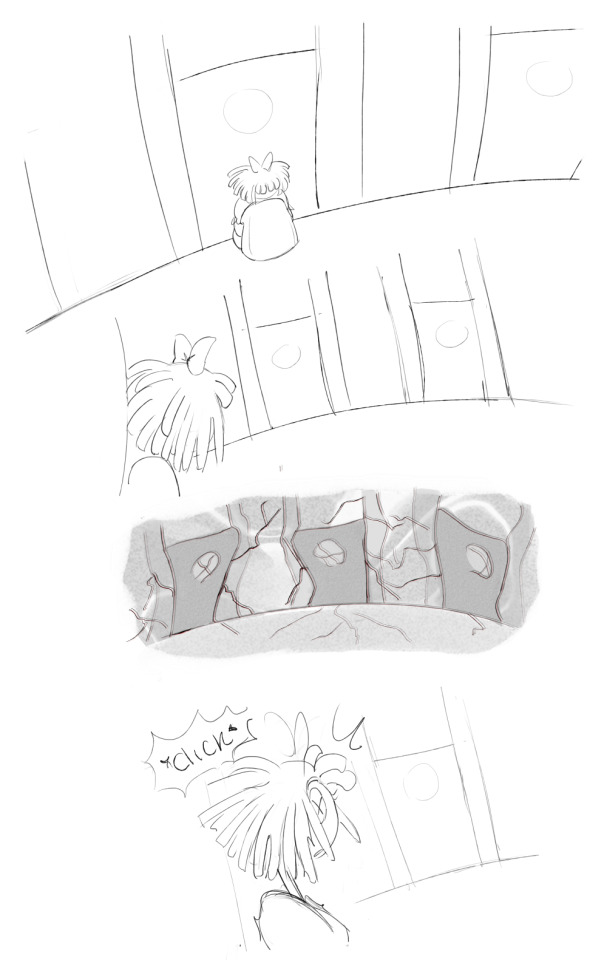
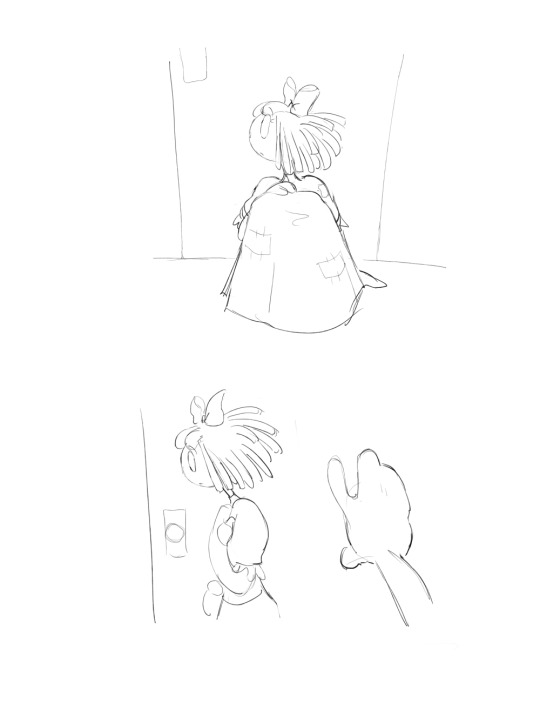
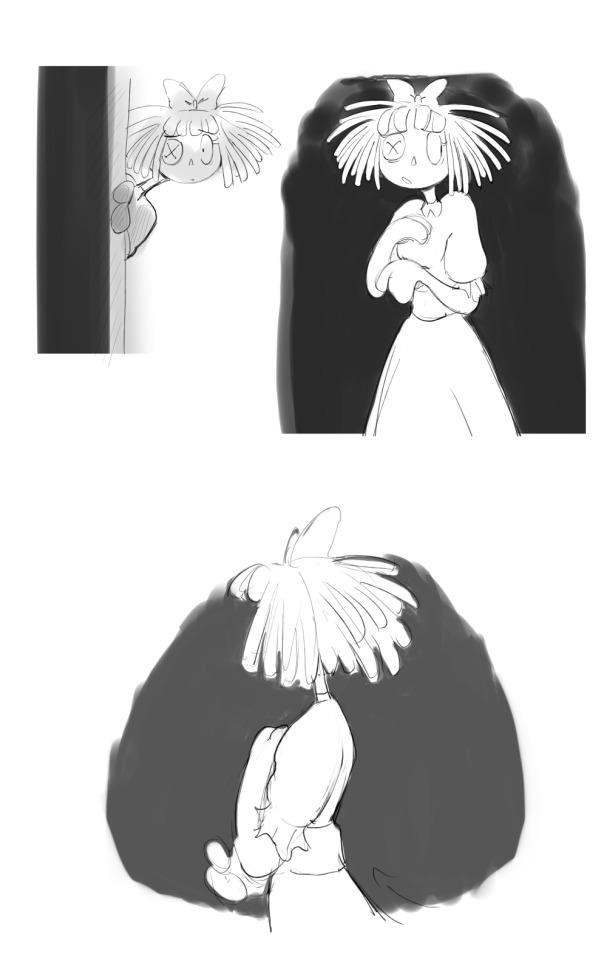
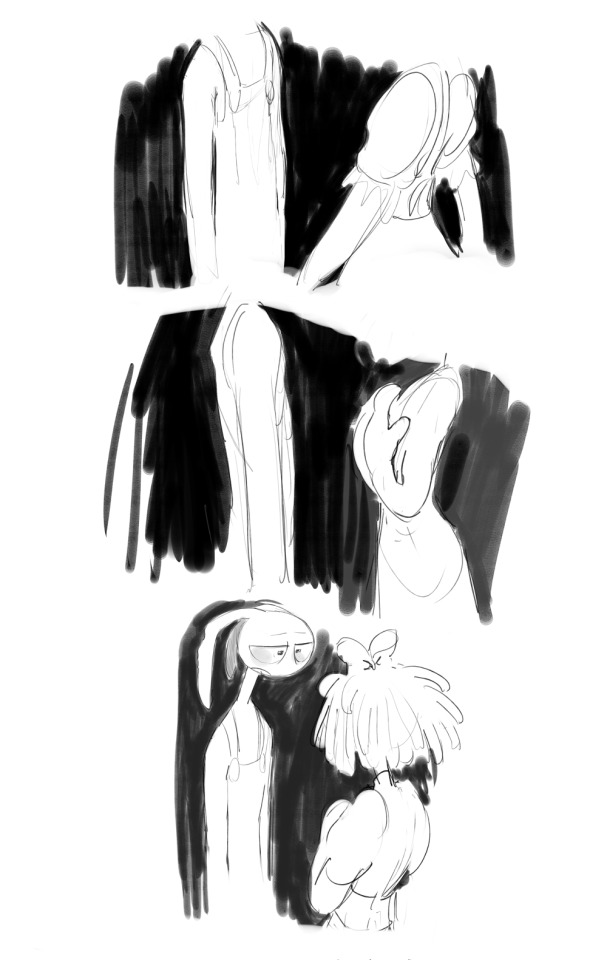
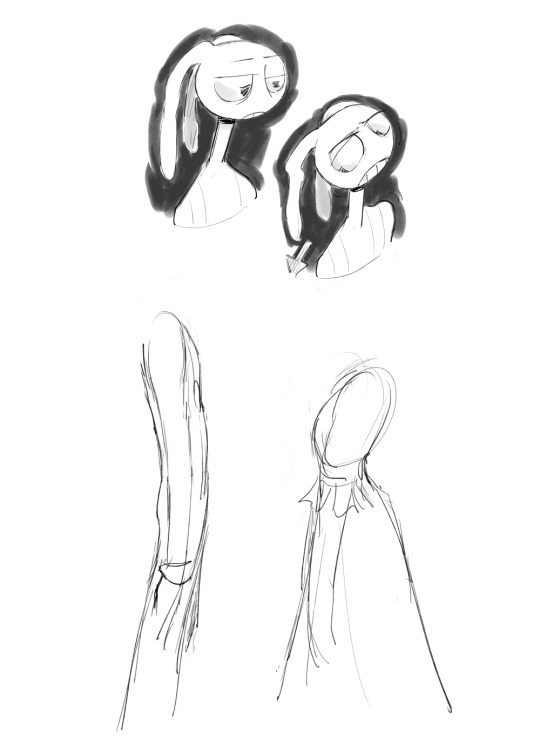
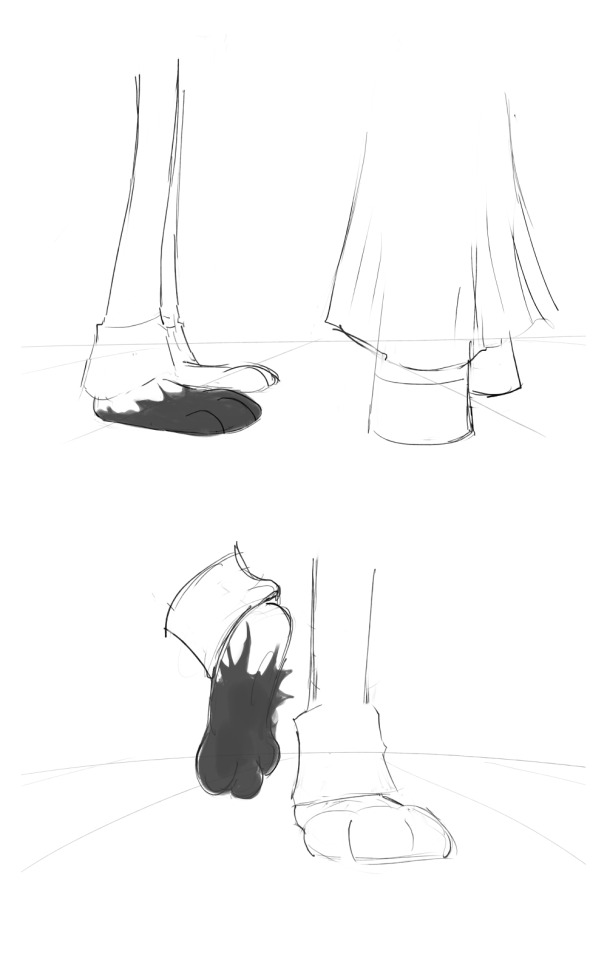
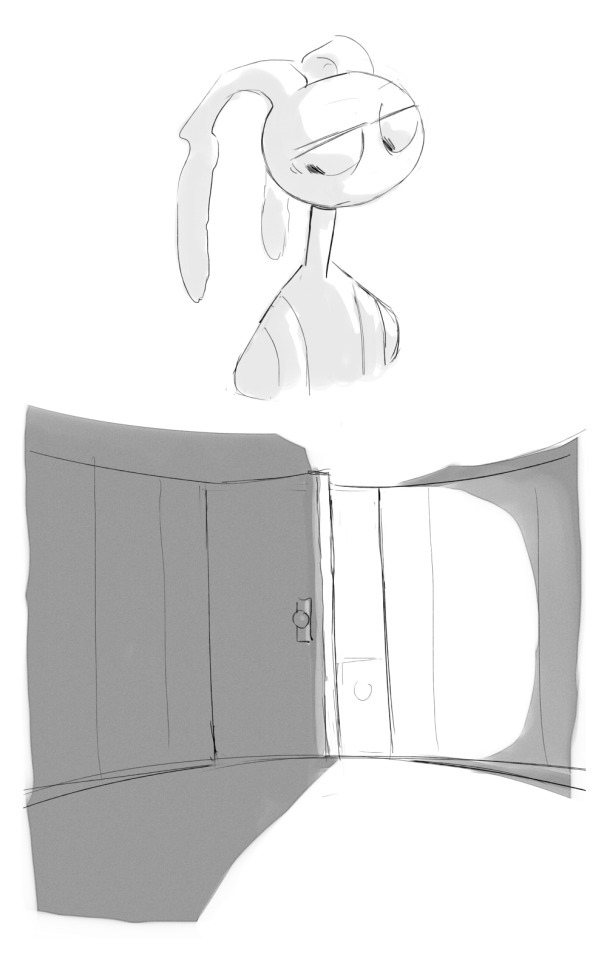
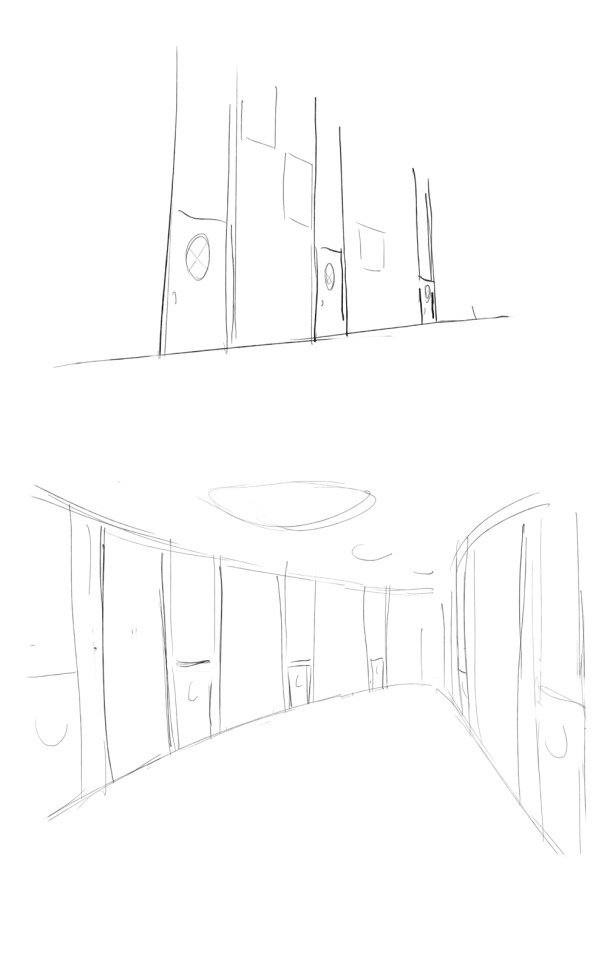
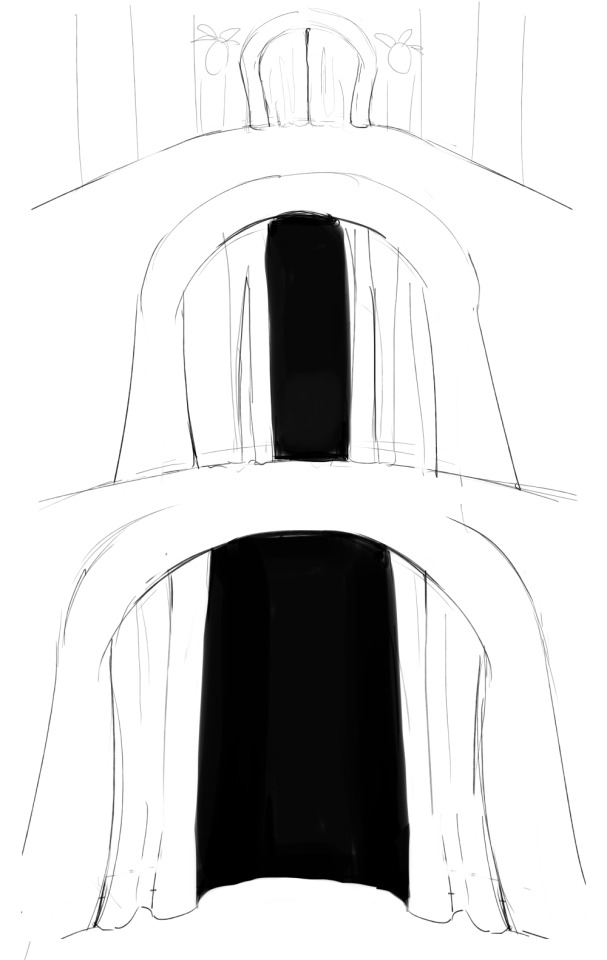
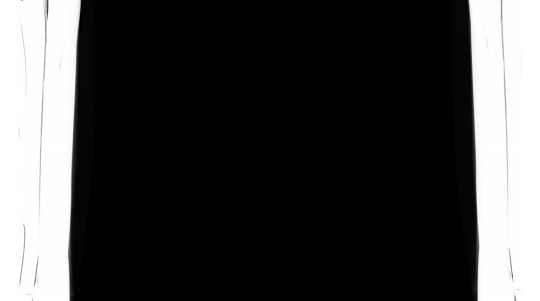
#tadc#the amazing digital circus#tadc jax#jax#tadc ragatha#ragatha#bunnydoll#I need to pathetically explain myself here and say this was just one of those go to bed thoughts I've had for a while.#It was an idea for the sake of daydreaming and I never intended to ever draw it but then it happened and I got carried away.#I'd honestly call this a bit of a un-headcanon lmao#None of us know at this point so any one of them could be close or not close to losing it.#Saying that I feel Jax seems like one of the more stable of the group and out of the both of them Ragatha is closer to abstraction if at al#But it's interesting to think if he actually isn't to some degree and there's more behind that grin I can't lie#And I wouldn't portray abstraction like this either I'd go about it differently. again just one of those fleeting throw-away thoughts#It ends ambiguously but you can decide what you want. I know how it ends.#I just got really into portraying the mood or cinematics without any dialogue.
1K notes
·
View notes
Text
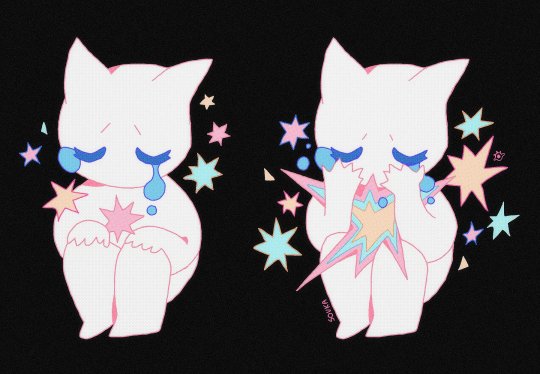
you're not defective ✶
#illustration#procreate#artists on tumblr#digital art#pride#pride month#pansexual#star#emotion#feeling#abstract art#lgbtq
8K notes
·
View notes
Text
being an artist

#was having gloomy thoughts about my place as an artist and my future#and this vision popped into my head so i drew it#i feel like the difference between the result and my vision really emphasizes my point lmao#but yeah uh#art#my art#digital art#abstract?#starman#shooting star#there was an attempt
519 notes
·
View notes
Text
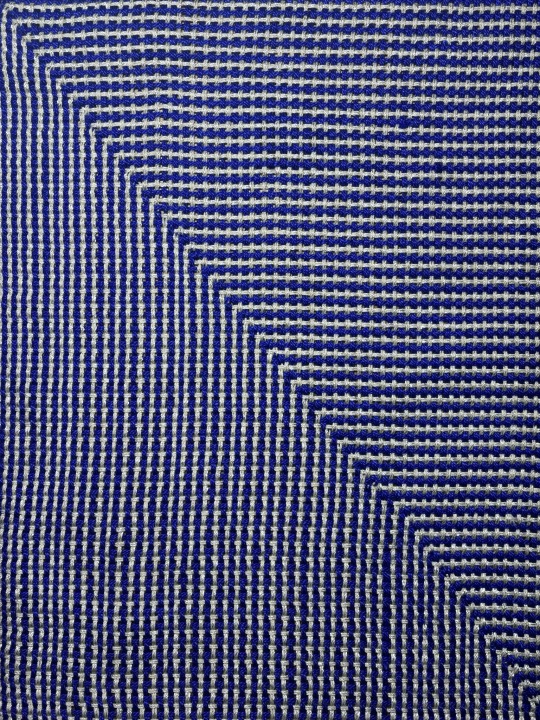

handwoven pearl cotton+mystery cellulose yarn, jan 2025
#my work#feeling color-and-weave-y#weaving#textile art#art#handweaving#textiles#fiber art#abstract art#geometric art
298 notes
·
View notes
Text

HMS Magical Girls: lets just get along!
aka, i draw hms as magical girls for fun
#my art#chonny jash#soul#heart#mind#cccc#hms mg:ljga!#<making a tag for this. because i am getting... a feeling abt this one....an ominouse feeling...#no promises#anyway so ive been thinking abt hms being magical girls for about a week now#abstract thoughts of designs... finally got round to it#heeheeeh....#i think the name is funny btw it feels clunky which is perfect for these guys
236 notes
·
View notes
Text
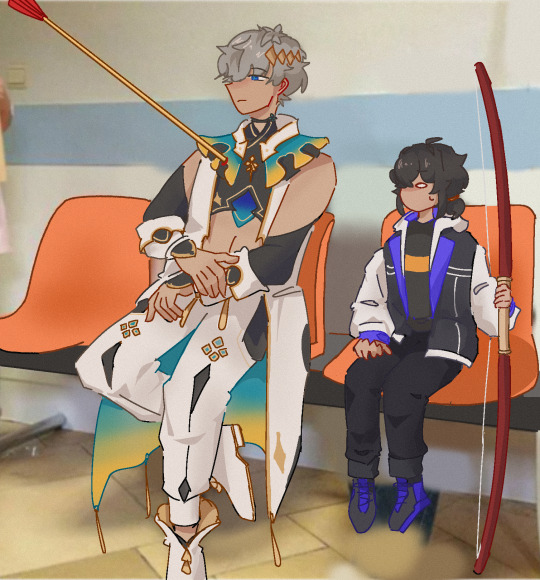
uh oh
#art#obey me#obey me raphael#jtta ik#forcing myself to have a go at shading things. if i never try i will never get better!!!!!!!#mind if i brain dump real quick bc i've been thinking lately about how i refer to myself as a writer but never an artist#whenever i mention it i always say 'i draw stuff' or 'illustrate' instead#it's not like i feel particularly inferior about how i draw bc of course! i haven't gotten around to even touching an art course!!#but to me 'artist' encapsulates a sort of abstract skill and i always feel like i draw much more objectively#it is just The Thing That I Am Depicting and that's prob why i have such trouble with shading and any non-literal colouring#the best thing i've made so far is that one satan thing and i have yet to remember how i managed that#anyway i've been trying some new stuff out!! slowly but surely#that's all mostly stuff i'll keep to myself though#anyway if you actually read through all that Thank you i love you
669 notes
·
View notes
Text
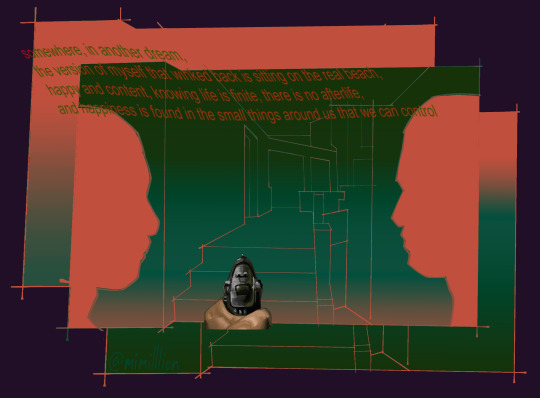
happiness has to be fought for
#myhouse.wad#fanart#how do i even tag this. this feels so obscure#horror#digital horror#surreal#abstract art
4K notes
·
View notes